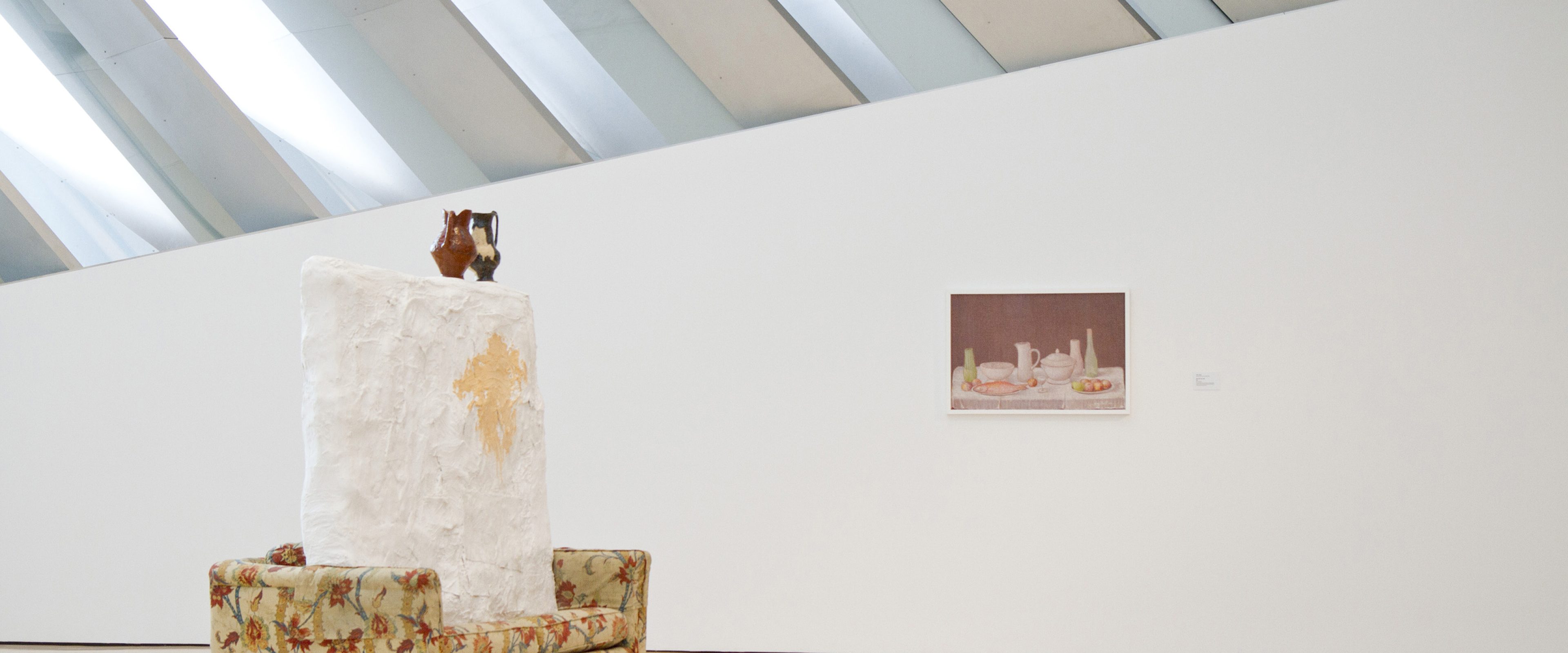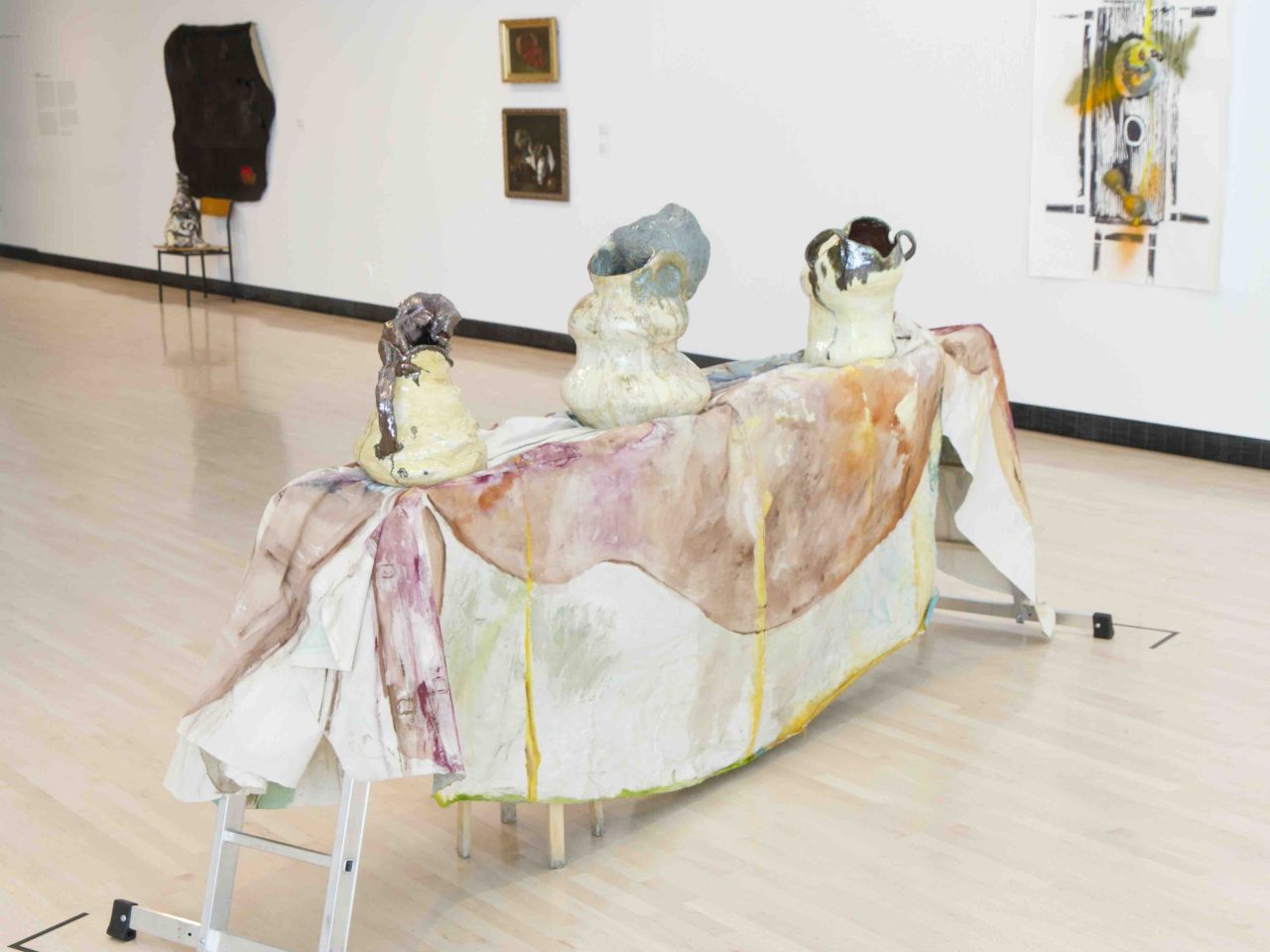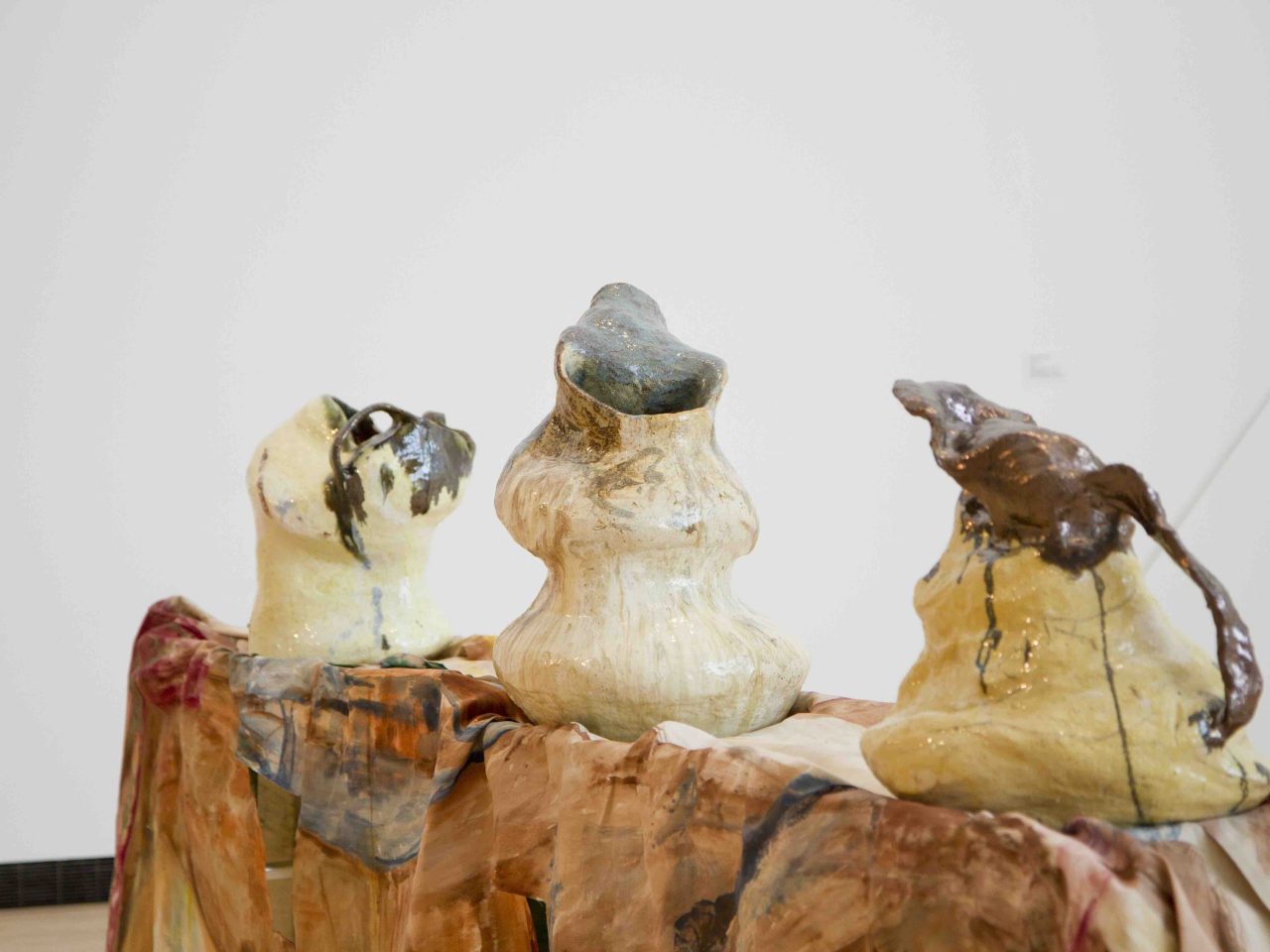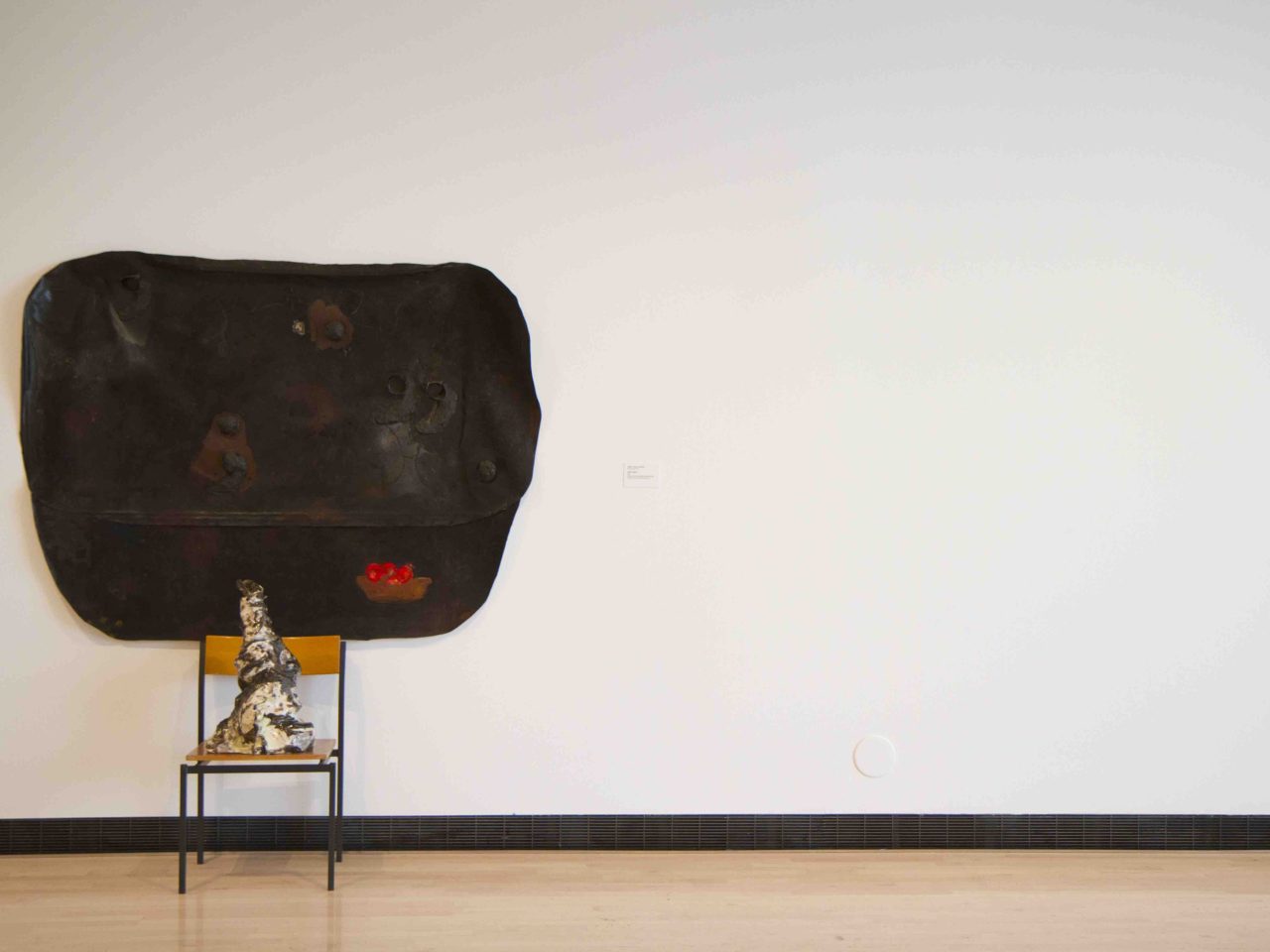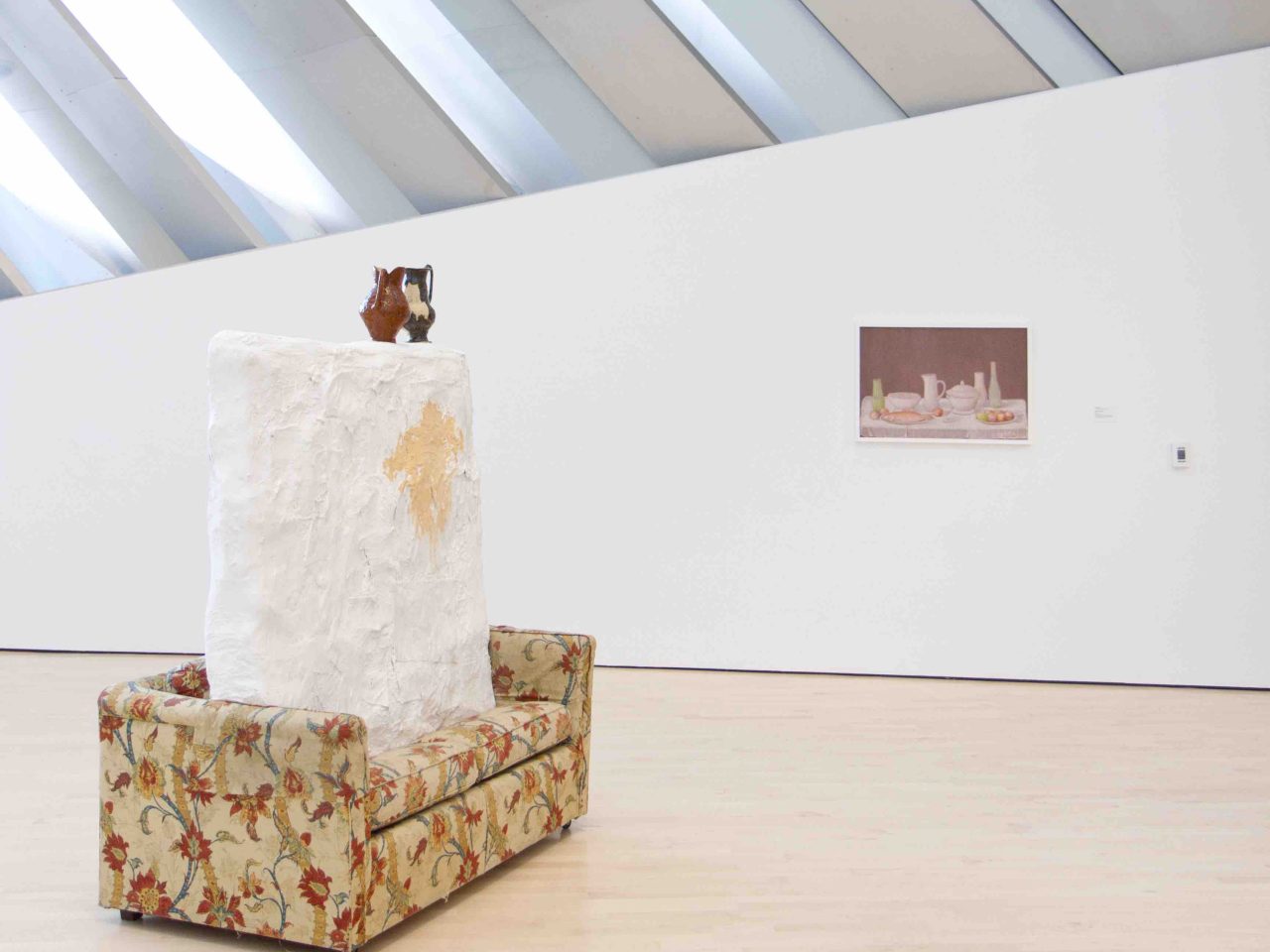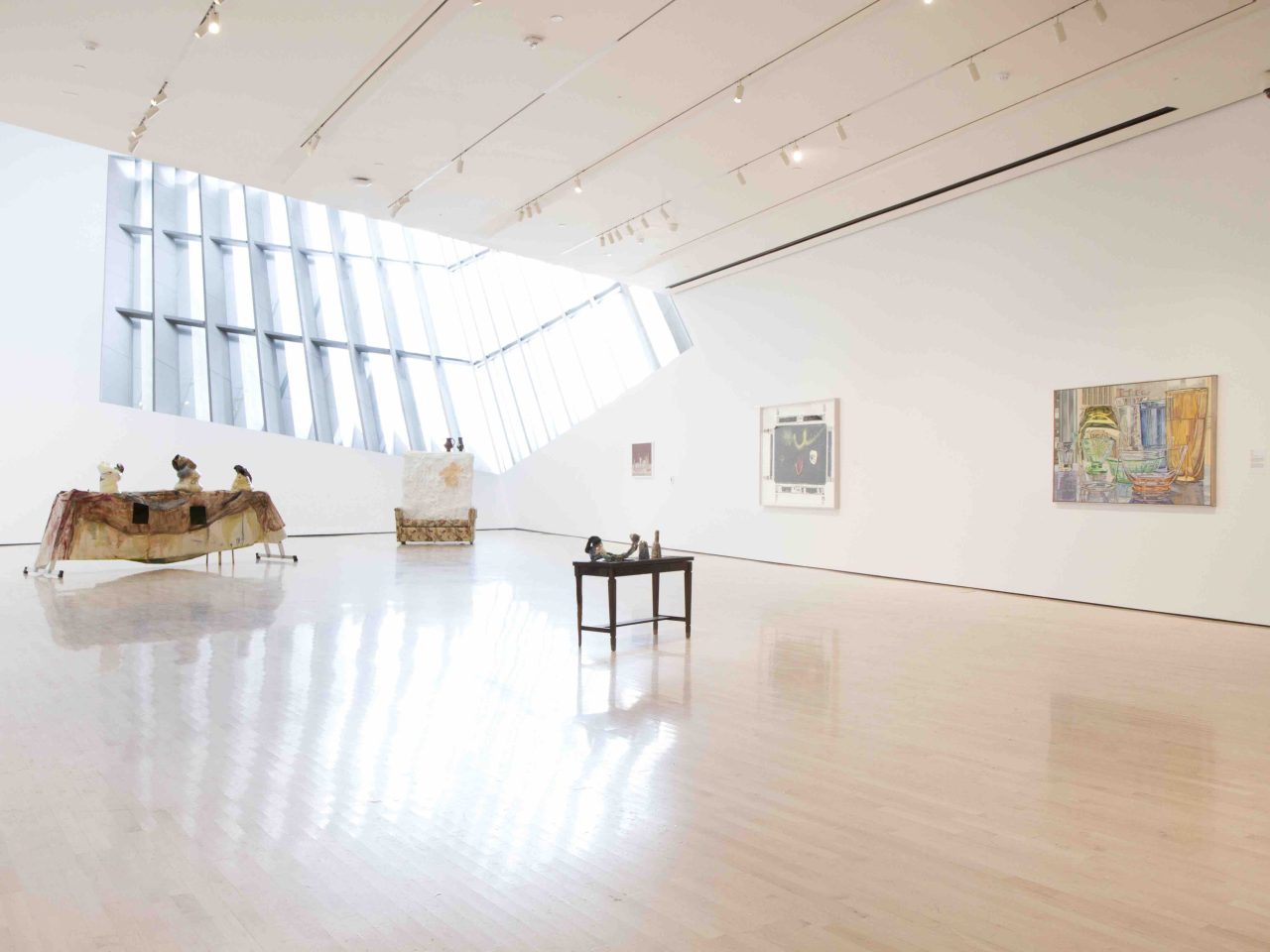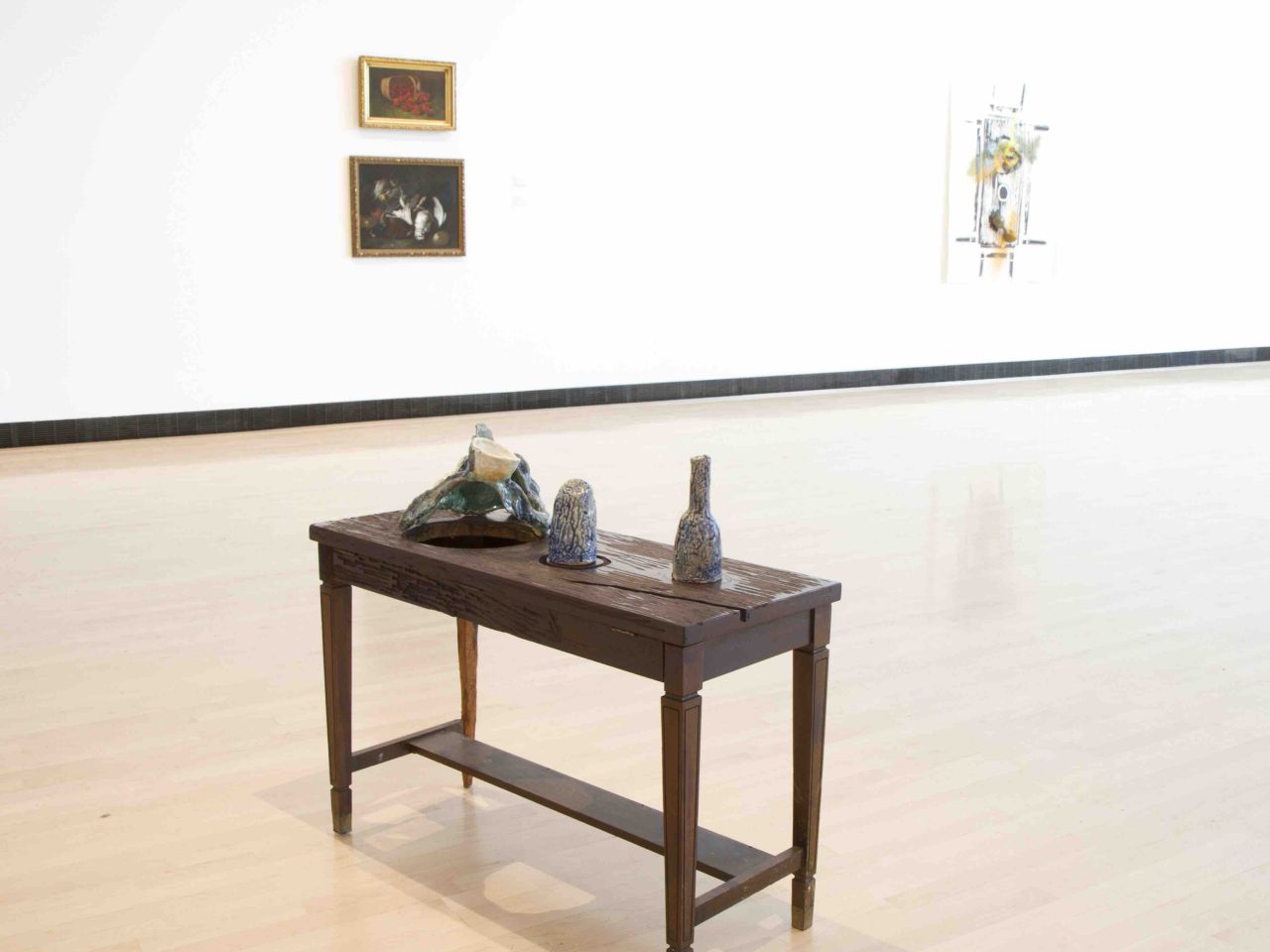The Genres: Still Life featuring Jessica Jackson Hutchins is organized by the Eli and Edythe Broad Art Museum at Michigan State University and curated by Alison Gass, Deputy Director and Curator of Contemporary Art. Support for this exhibition is provided by the MSU Broad’s general exhibitions fund.
About the Exhibition
This exhibition is the second in the three part series, The Genres: Portraiture, Still Life, and Landscape, which features contemporary artists who have reinvented, reworked, or re-engaged one of these historical categories of Western Art. The series uses the format of artist as curator or co-curator to mine the Museum’s collection and to contextualize recent works within the language of art history.
Portland-based artist, Jessica Jackson Hutchins has risen to international visibility over the past few years for her exploration of many of the big-picture issues central to contemporary art, from questions posed by experimentation with art materials, scale, and abstraction to social concerns such as gender and the value of the art object. Among her best-known works are large-scale, additive sculptural collages that entwine found and constructed objects with the stuff of her own domestic life—including pieces of her own family’s clothing.
This exhibition trains a focused lens on Hutchins’s engagement with the grand tradition of still life, a genre traditionally characterized by intimately scaled depictions of everyday objects, most commonly presented in painted form. Through its scale and three-dimensionality, Hutchins’s work clearly veers dramatically away from common conceptions of traditional still-life painting.
As is the format of the Genres series, Hutchins has selected traditional still life works from the historical collection, inherited by the MSU Broad from the former Kresge Art Museum, to be shown alongside her own works. By presenting this selection of objects in the same space, this exhibition creates artistic dialogues, questioning the traditional notion of still life, the nature of domesticity, and the way the meanings of objects can change dramatically depending on their context.
